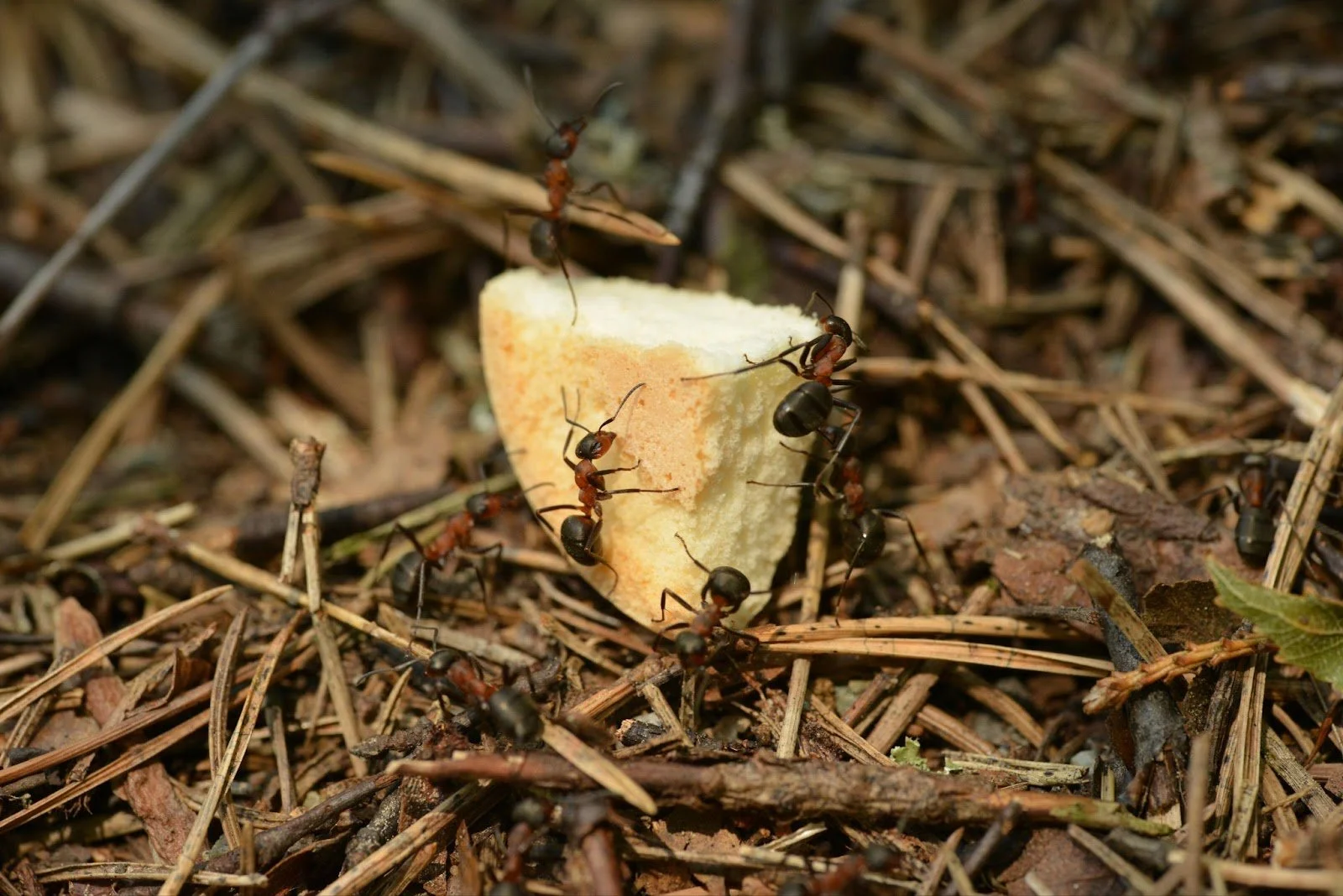Do Spiders Eat Ants? Understanding Their Diet and Behavior
As summer heat ramps up in Claremont, you might notice more uninvited guests making their way into your home. And we’re not talking about neighbors who pop over during backyard barbecues.
We’re talking about pests.
From the tree-lined streets near the Claremont Colleges to quiet neighborhoods by the foothills, warm, dry weather sends both spiders and ants scrambling indoors in search of cooler air and water—often right into your kitchen or bathroom.
It’s a common sight, but it leads to a pressing question: with both pests sharing your space, do spiders eat ants?
Why Spiders Hunt Ants and Other Household Pests
Spiders are generalist predators, which means they aren’t picky eaters. Their diet is a "who's who" of the insect world, including flies, mosquitoes, roaches, and, yes, sometimes ants.
However, ants are not a spider's first choice for a meal. Many ant species can be aggressive, fighting back with powerful bites or stings. Some even spray formic acid, a chemical that can harm or kill a spider.
Despite the risks, certain types of spiders are well-equipped to hunt them. For example, the black widow, a common resident in Southern California gardens, has incredibly strong silk that can easily trap and immobilize ants. Other ground-dwelling spiders might ambush foraging ants.
When a spider does successfully capture an ant, it uses its fangs to inject venom, liquefying the ant's insides before consuming it. This predator-prey relationship can be a small but helpful part of your home's ecosystem, as spiders help manage populations of other, more troublesome pests.
How Spider Diets Can Indicate Other Pest Problems in Your Home
Spiders usually go where food is abundant. If you’re noticing more webs around your Claremont property—say, near Memorial Park or in shaded backyard corners—it’s worth asking what else is crawling around.
You might find that:
A surge of ants is drawing spiders to baseboards and kitchen counters.
Summer fly swarms are causing spiders to cluster near windows and porch lights.
Cockroaches or silverfish are attracting spiders to damp garages or basements.
In other words, spotting more spiders may not be the core problem—it could point to a larger pest issue that needs addressing.
When to Call Pest Control for Spiders (and the Ants They Feed On)
A few spiders can be beneficial, but when they start to multiply—or if venomous species like black widows are spotted—it’s time to call for help.
At ProCraft Pest Control, we understand the unique pest challenges of Claremont homes. We don’t just remove spiders; we identify the pests they’re feeding on and treat the source. Our comprehensive approach keeps both spiders and their prey under control, providing lasting relief for your home and family.
Contact us today to schedule pest control service in Claremont, CA.
Did You Know?
Some spiders have developed incredible ways to trick their prey. The bolas spider, for instance, doesn't spin a traditional web. Instead, it creates a single line of silk with a sticky glob of glue at the end, which it swings to catch passing moths. This "spider lasso" mimics the pheromones of female moths to lure unsuspecting males right into its trap.
FAQ
Do spiders eat ants?
Yes, some spiders do eat ants, but they are not typically their preferred food source. Many ant species are aggressive and can defend themselves effectively, making them a risky meal. Spiders are more likely to prey on easier targets like flies, mosquitoes, and other less formidable insects.
What types of spiders eat ants?
Certain spiders are better equipped to handle ants. Black widows, with their strong webs, can trap ants. Other hunters, like jumping spiders or wolf spiders, may ambush individual ants. However, it is not a primary dietary staple for most spider species found in homes.
If I have a lot of spiders, does that mean I have an ant problem?
An increase in the spider population in your home often indicates the presence of a steady food source. While that food source could be ants, it could also be other common household pests like flies, roaches, or silverfish. Seeing more spiders is a good reason to investigate for a larger, underlying pest infestation.
Is it a good idea to leave spiders in my home to control other pests?
While one or two spiders might help catch the occasional fly, relying on them for pest control is not an effective strategy for managing a true infestation. Furthermore, some spiders, like black widows, are venomous and pose a risk to your family and pets. Professional pest control is the safest way to manage all pest issues comprehensively.


